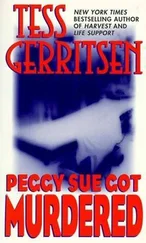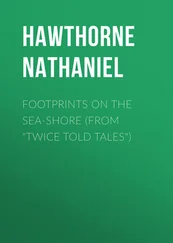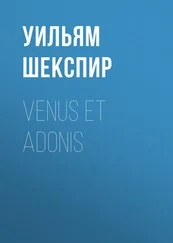Sarah Caudwell - Thus Was Adonis Murdered
Здесь есть возможность читать онлайн «Sarah Caudwell - Thus Was Adonis Murdered» весь текст электронной книги совершенно бесплатно (целиком полную версию без сокращений). В некоторых случаях можно слушать аудио, скачать через торрент в формате fb2 и присутствует краткое содержание. Жанр: Иронический детектив, на английском языке. Описание произведения, (предисловие) а так же отзывы посетителей доступны на портале библиотеки ЛибКат.
- Название:Thus Was Adonis Murdered
- Автор:
- Жанр:
- Год:неизвестен
- ISBN:нет данных
- Рейтинг книги:5 / 5. Голосов: 1
-
Избранное:Добавить в избранное
- Отзывы:
-
Ваша оценка:
- 100
- 1
- 2
- 3
- 4
- 5
Thus Was Adonis Murdered: краткое содержание, описание и аннотация
Предлагаем к чтению аннотацию, описание, краткое содержание или предисловие (зависит от того, что написал сам автор книги «Thus Was Adonis Murdered»). Если вы не нашли необходимую информацию о книге — напишите в комментариях, мы постараемся отыскать её.
Thus Was Adonis Murdered — читать онлайн бесплатно полную книгу (весь текст) целиком
Ниже представлен текст книги, разбитый по страницам. Система сохранения места последней прочитанной страницы, позволяет с удобством читать онлайн бесплатно книгу «Thus Was Adonis Murdered», без необходимости каждый раз заново искать на чём Вы остановились. Поставьте закладку, и сможете в любой момент перейти на страницу, на которой закончили чтение.
Интервал:
Закладка:
The procedure for taking advantage of Italian waiters — equally applicable, so far as I am aware, in other areas of the Mediterranean — does not merit any long exposition. It consists chiefly of staying in bed until they bring one’s breakfast and then smiling benevolently. Waiters, generally speaking, seem not to mind being taken advantage of.
It is to be remembered, however, that they are an overworked and exploited profession, who have to spend much of their energies running to and fro carrying drinks and so on, so that the duration of the pleasure given is not always commensurate to the enthusiasm with which it is offered. If the coffee brought me by the pretty waiter had been cold by the time he left, I should have been willing, in the particular circumstances, to forgive him; but my forgiveness was not called for. Still, one must not be ungrateful — strawberries are strawberries.
I come now to the curious and possibly sinister incident.
For the reasons indicated above, it was rather later than usual — though not so much later as I could have wished — that I was ready to leave my room. On opening my door, however, I observed that the corridor contained the Major. Fortunately, he did not see me, being at that moment in the act of closing the door to his room. To avoid meeting him being at present one of my chief objects, I withdrew again to my room and lit a Gauloise. When I had smoked half of it, I thought it must be safe to leave.
The Major was still in the corridor and was still closing a door. Well, you will say, Selena, that there was nothing very startling about that — he had forgotten something, you will say, had gone back to his room for it and was now leaving for a second time. I do not think, however, that your hypothesis is tenable; for it seemed to me that the door he was closing on this occasion was not that of his own room — it was that of the adjoining room, which is occupied by Ned and Kenneth Dunfermline. Much perplexed, I withdrew again and smoked the rest of the Gauloise. Then, with the utmost caution, I looked out again into the corridor.
The Major was still in the corridor. He was still closing a door. This time, if my observation by now was at all to be relied on, the door of his own room.
Much shaken, I withdrew yet again and consumed in two gulps what remained of my duty-free brandy. The liquid which saw Napoleon across the Russian Steppes did not fail me — when next I opened my door, the corridor was empty. Without further untoward incident, I made my way to the terrace.
The incident I have described seemed to me extraordinarily disquieting. I could think of no sensible reason for the Major to spend some ten minutes rigidly posed in the attitude of one closing a door. The likely explanation, I felt, was that the suggestion of marrying him had had such traumatic effects on me as to induce a series of paranoid hallucinations: whenever I opened a door, I would imagine, unless previously fortified by brandy, that I saw the Major closing one. This, with brandy the price it is, would be an inconvenient affliction.
“Odd,” said Selena. “It looks as if the Major went into the room occupied by Ned and Kenneth and stayed there for about five minutes. After that, evidently, he went back to his own room and stayed there for another five minutes or so before finally going out. I wonder why.”
“It is possible,” said Ragwort, “that he visited the other room with the consent of the occupants. But the timing seems a little furtive — it sounds, doesn’t it, as if he had waited until everyone else in the annexe could be expected to have left their rooms and gone about their lawful business — all those, that is to say, who were not conducting themselves disgracefully with the domestic staff. Don’t you think that it sounds like a first attempt to steal whatever was in the holdall?”
“No,” said Cantrip, “what I think it sounds like is Othello looking for Desdemona’s handkerchief.”
“You are suggesting,” asked Selena, “that the Major, entertaining some suspicion of Julia’s dealings with Ned, was searching Ned’s room for corroborative evidence?”
Cantrip nodded.
My intention in going on to the terrace had been to write to you immediately of this disturbing experience. I was diverted from my purpose, however, by the discovery there of the lovely Ned, leaning in a graceful attitude against the balcony which divides the terrace from the canal.
This was not altogether a piece of good fortune, for he was looking more beautiful than ever. The sunlight catching his pale hair, his white shirt a little open to show the smoothness of his neck, his translucent skin warmed by eight days in Venice — if he reminded one before of something by Praxiteles, one thought now that the artist had cast his work in gold. The effect was to inspire in me as ardent a passion as I had felt when I first saw him on the aeroplane. It seemed to me, after all the trouble I had been to, that Wednesday afternoon had done me no good at all. Well, I suppose that is not strictly true — it is always better to have had Wednesday afternoon than not to have had Wednesday afternoon; but I could find in myself none of that quiet contentment which one looks for as the consequence of an achieved desire.
“You appear,” I said, “at some risk of falling into the canal. Do at least avoid the danger of looking at your reflection in it. Remember Narcissus.”
At this he smiled and looked pleased; but I was prevented from further compliment by the arrival on the terrace of Marylou, free, for once, of matrimonial surveillance.
“I haven’t seen you two in days,” she said, sounding reproachful.
“The loss is ours,” I answered, “rather than the fault.”
“Anyway,” she went on, “I hope you’re both coming on the trip to Verona this afternoon. Stanford didn’t want to go, because he’s already been to Verona. But I told Stanford no way was I going to miss seeing Verona just because he’d been there at the weekend seeing a business acquaintance.” Her tone suggested no improvement in her opinion of such a person. “And I don’t figure we’ll be seeing the same things he saw over the weekend. He won’t have looked at anything historically relevant, not unless you count a ten-year-old bottle of rye. I mean, Stanford is not exactly aesthetically aware. He is a fine person in many ways — but when they dished up aesthetic awareness, I guess that Stanford just wasn’t holding his plate out. So I hope you’re both coming this afternoon?”
“No, I’m afraid not,” answered Ned. “Ken’s going. But Julia and I both went on Tuesday.”
She expressed her disappointment with flattering exaggeration, and asked if we had enjoyed Verona.
“Very much,” answered Ned. “Graziella wasn’t able to come with us, so Julia acted as guide.”
“Oh, I wish I’d been with you,” she said. “I think Julia’d be a just marvellous guide.”
“Oh yes,” he said, with great demureness, “she is. Excellent. She takes one to all the places one ought to go to. And sometimes,” he added, with even greater demureness, “to places one ought not to go to.” And thinking, no doubt, that this could not be improved on as an exit line, he excused himself from our company and left the terrace.
I was still not able to write to you immediately of the Phenomenon of the Recurring Major, for Marylou persuaded me to go with her on a shopping expedition. It seemed to me that on the Rialto she had already acquired in wholesale quantities every form of merchandise that Venice offers to the discerning tourist; but she assured me that this was not the case.
As a result of this diversion, it was not until midday that I was able to return here and write to you of my disquieting experience. Even now, I have not escaped interruption. My secluded corner of the terrace has been taken over for the purpose of an assignation. I am left exposed to enquiry from all the tourists who pass to and fro in the lobby of the Cytherea and for some reason look on me as a likely source of information: three large German matrons, wearing identical straw hats, have asked me the way to the ladies’; an earnest young Englishman has asked me to point out the house where Byron lived; a party of French schoolgirls have asked me which vaporetto will take them to the Lido. I have responded sympathetically, if not accurately, to all these enquiries. You will therefore forgive, I hope, the disjointedness of my narrative.
Читать дальшеИнтервал:
Закладка:
Похожие книги на «Thus Was Adonis Murdered»
Представляем Вашему вниманию похожие книги на «Thus Was Adonis Murdered» списком для выбора. Мы отобрали схожую по названию и смыслу литературу в надежде предоставить читателям больше вариантов отыскать новые, интересные, ещё непрочитанные произведения.
Обсуждение, отзывы о книге «Thus Was Adonis Murdered» и просто собственные мнения читателей. Оставьте ваши комментарии, напишите, что Вы думаете о произведении, его смысле или главных героях. Укажите что конкретно понравилось, а что нет, и почему Вы так считаете.











